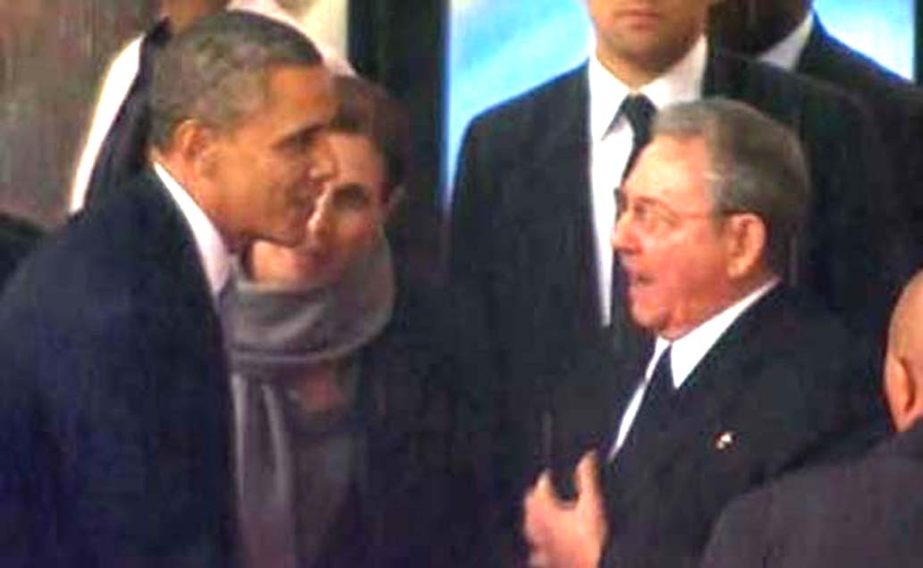
AFP, Panama City :US President Barack Obama and Cuba’s Raul Castro will have a historic face-to-face encounter at the Summit of the Americas this week, breaking the ice after decades of glacial relations.The image of US and Cuban presidents sitting across from each other at the 35-nation summit for the first time after decades of Cold War-era animosity will be the highlight of the gathering in Panama on Friday and Saturday.While the meeting will mark a major milestone — no Cuban leader has attended a Summit of the Americas — the two sides have yet to reopen embassies and lingering differences have been evident at negotiations that started in January.Cuba’s inclusion on a list of state sponsors of terrorism has been a major sticking point in negotiations to restore full diplomatic ties, which were downgraded back in 1961.The White House indicated this week that the State Department was in the “final stages” of deciding whether to recommend Havana’s removal from the list. Congress would then have 45 days to decide whether to override Obama’s decision.”We’re trying to get it done quickly,” a US State Department official told AFP on condition of anonymity.In another sign of warming ties, the US State Department said Secretary of State John Kerry could meet with Cuban Foreign Minister Bruno Rodriguez on the sidelines of the summit.But a scene of lingering tensions among Cuban dissidents and government sympathizers emerged on Wednesday ahead of the summit.Some 100 Castro regime supporters jeered dissidents as they arrived at a Latin American civil society forum in a Panama City hotel, shouting “sell outs” and “imperialists” before leaving the event.Another wild card is Venezuela’s socialist President Nicolas Maduro, Havana’s main ally in the region. He could overshadow the summit with grievances over US sanctions against Caracas officials over an opposition crackdown.Maduro plans to bring a petition with 10 million signatures from Venezuelans demanding that Obama revoke his executive order declaring Venezuela a US national security threat.”The Obama-Castro meeting will still punch through as the highlight, but certainly (Venezuela) will complicate that story and weaken it,” Ted Piccone, a foreign policy advisor during the Bill Clinton presidency, told AFP.Maduro’s petition could “become a major polarizing issue at the summit,” said Piccone, now an expert at the Brookings Institution think tank.The White House is seeking to ease tensions, saying it does not really believe that Caracas threatens US national security, and dispatching a senior official to Caracas.Top State Department official Thomas Shannon met Wednesday with Venezuelan Foreign Minister Delcy Rodriguez, whose office said that she demanded that Obama withdraw his executive order.Separately, the Brazilian government said President Dilma Rousseff spoke with Maduro, who expressed “his willingness to promote a reduction of tensions with the United States on the basis of mutual respect of national sovereignty.”

